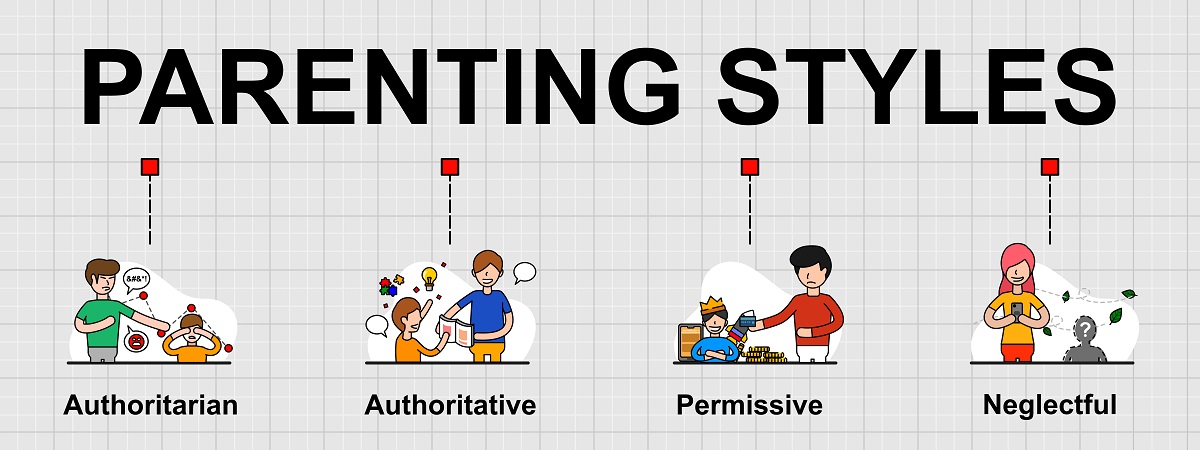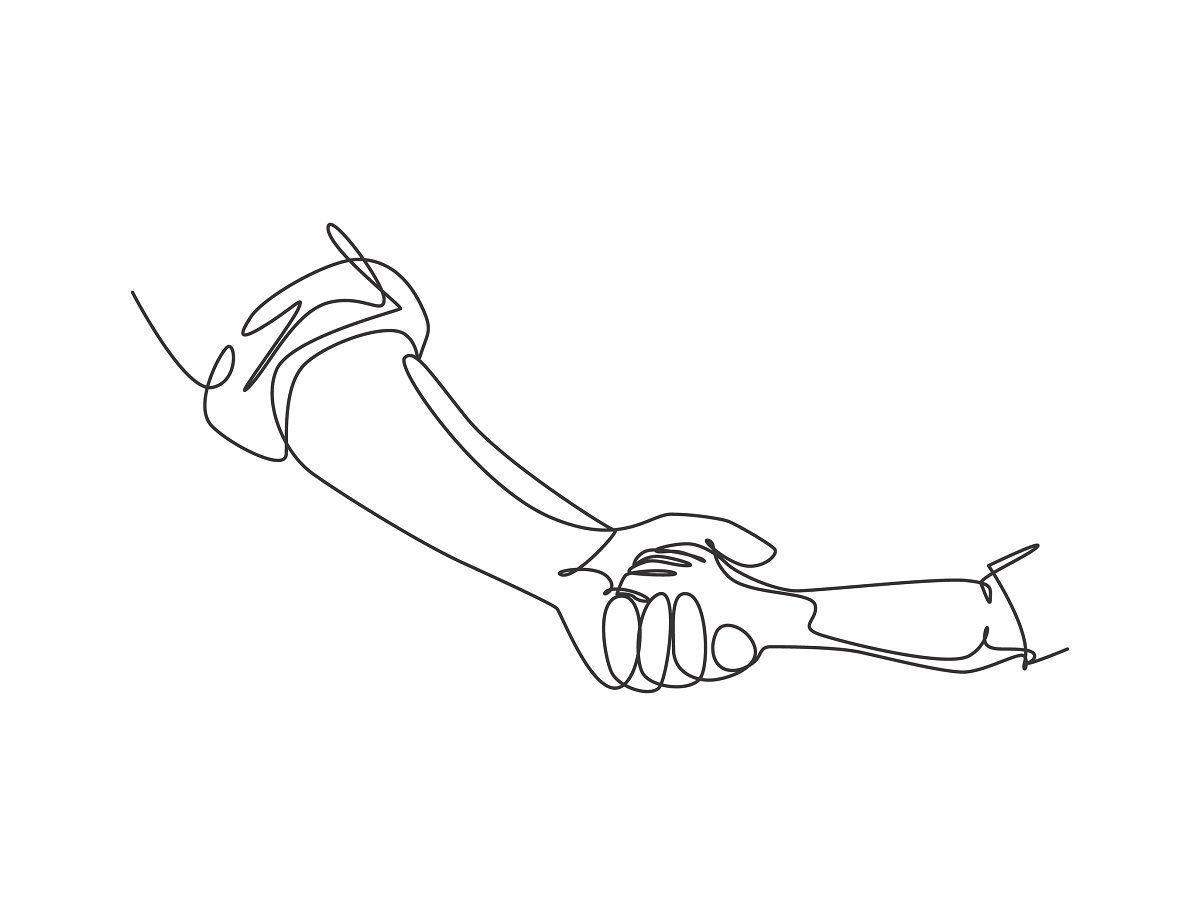Being a Good Parent: Different Parenting Styles
May 2, 2022
Children are different in so many ways. Being a kindergarten teacher and a behavior therapist, I witness a whole spectrum of differences between kids and their parents. The parent-child relationship is reflected in the child’s demeanor. According to Laurence Steinberg, Ph.D., good parenting is necessary to help foster behavior and emotions in most children. Let us take a look at different parenting styles and check what parenting style you administer to your child.
“Parenting style is defined as a constellation of parents' attitudes and behaviors toward children and an emotional climate in which the parents' behaviors are expressed.” (Darling & Steinberg, 1993)
Different Parenting Styles by Diana Baumrind, a developmental psychologist

In the United States, estimated 46% of parents are authoritative, 26% use the authoritarian parenting style, 18% are permissive, and 10% use the neglectful parenting style.
- Authoritative – parents adopting this style are nurturing, responsive, and supportive, but also set limits for their children. They control their children’s behavior through discussion, reasoning, and explaining different rules. They communicate with their children and listen to them but would not accept just any behavior and set boundaries. An example of this parenting style is Mirabel’s parents in Encanto. Mirabel is the only member of the family that doesn’t have any power, but in a challenging situation she decides to help her family out. Even though other family members push Mirabel into doing nothing considering her weak, the girl’s parents believe she’s capable and support her decision while still guiding her. Kids raised in this manner tend to be cheerful, energetic, self-controlled, self-reliant, friendly, and cooperative.
Here are some signs indicating you’re an authoritative parent:
- You make an effort to have a positive relationship with your child;
- You explain to them why you set certain rules so the child understands why they are important and how they will help them;
- While setting rules and limitations, you consider your child’s feelings;
- You use a positive reward system alongside punishments.
- Permissive – this is a type of parenting style in which parents are warm, but lax. There are no firm limits set for the children that would allow one to monitor them closely or to require appropriate behavior. A person practicing the permissive parenting style takes on a friend’s role instead of a parent’s role in the relationship with their child. Such parents prefer to avoid conflicts by catering to their child’s every wish. A vivid example is Regina George’s mom from Mean Girls. You can see her letting Regina do whatever she wants – stay out past midnight, drink alcohol, and decide everything about her own life. She considers herself a cool mom, not like the others. Even though such a relationship might really look cool, it may also have a bad effect on a child’s behavior. Children raised in this manner tend to have self-control but can also be impulsive, rebellious, and aggressive.
Here are some signs of a permissive parent:
- You may have rules but you rarely enforce them;
- There are little to no consequences for your child when they do something wrong or when they do not abide by the rules;
- You feel like your child will be better off if you do not interfere with them;
- Your child thinks of you as their “best friend”;
- You always try to justify any behavior of your child as “normal for their age”.
- Neglectful – such parents are usually uninvolved or absent. They provide little guidance to their children and are unresponsive. Parents adopting this style might appear uncaring, but this perceived indifference can be unintentional and a result of the adult having tough struggles of their own. If you watch the cartoon The Fairly Odd Parents, you might identify Timmy Turner’s parents as neglectful. They do not care that their son is being abused by his babysitter, and know nothing about the situations their son gets into. They provide him with little to no guidance – the reason Timmy is given fairy godparents. Children brought up in this way tend to have little self-confidence and low self-esteem.
You might be a neglectful parent if:
- You have little to no communication with your child – you do not ask them how things at school are or how their day went;
- You do not know your child’s friends and who they spend time with;
- You yourself do not spend much time with your child;
- You take little interest in your child’s activities.
- Authoritarian – we talk about this parenting style when adults impose strict rules and punishment on their kids. Authoritarian parents tend not to listen to their child’s worries and concerns. An example of this style is Queen Elinor from the movie Brave. Her daughter, Princess Merida, is to be the next queen of the kingdom, which requires her to learn the etiquette and rules of being a true queen. Merida, however, prefers to be in the wilderness honing her archery skills and climbing hills. When the princess’s parents decide that she must marry a prince of another clan, Merida rebels. Authoritarian parents usually love their children, but they are not affectionate or fail to show it. Children raised in the authoritarian style tend to have low self-esteem, depend on assurance from others and have poor social skills, they can show lower academic performance and be inclined to mental illness.
Below are the signs of authoritarian parenting:
- You believe that your child’s opinion does not matter;
- You believe that everything should always be your way;
- You do not care about your child’s feelings;
- Your child tries to act in a way that will prevent you from getting mad at them;
- Your child is scared of you.
A group of researchers reinstated Baumrind’s four parenting styles into two dimensions - “responsiveness” and “demandingness.”
Responsiveness is described as “the extent to which parents intentionally foster individuality, self-regulation, and self-assertion by being attuned, supportive, and acquiescent to children’s special needs and demands” (Baumrind 1991).
Demandingness is defined as “the claims parents make on children to become integrated into the family whole, by their maturity demands, supervision, disciplinary efforts and willingness to confront the child who disobeys” (Baumrind 1991).
A balance of these two is necessary for establishing a good relationship with your child and fostering their development.
Can parenting styles be combined?

Parenting styles have a significant impact on how children will face the world in the future. If you feel that your current parenting style is not working for you and your child, try switching to another one. It also helps to be flexible and to know when to change your parenting style depending on the situation. If you are an authoritative parent, then you may need to be permissive when your child is ill – by providing more warmth. On the other hand, a permissive parent may need to be stricter for the sake of their child’s safety – about talking to strangers, crossing the street, going out at night, etc.
All that said, experts agree that authoritative parenting style is the most effective. Based on a 1999 study, Dr. Anne Fletcher and her colleagues concluded that teens were better off even with just one authoritative parent, no matter what parenting style the other parent adopts.
Does the parenting style fully account for a child’s behavior?
Your parenting style affects your child’s development, but it is just one of the many influences. Peers and your child’s school environment have an effect on their behavior, too. For example, even with parents being authoritative and supportive a negative school environment might still pose a risk of provoking delinquent tendencies in a teen’s behavior.
Genetic and prenatal conditions also play a role in your child’s development – they might determine their level of aggression, temper, and even interests. For example, frequent tantrums may be largely caused by the influence of genetic predisposition triggered by the child’s environment.
Final words...
Consistency is one of the key components of successful parenting. When setting rules and boundaries, make sure that you’ve considered your child’s feelings and situation (level of development / health / mental balance) and that you will be able to stick to those rules no matter what. At the end of the day, your judgement will be your main guide, but always remember to communicate with your child because parenting style is one of the major factor defining a child’s behavior, mental health, and emotional wellbeing.
About the author
Jorezza Antonio - Behavioral Therapist.
Metro Manila, National Capital Region, Philippines.
Links and references:
- https://www.parents.com/parenting/better-parenting/style/what-makes-a-great-parent/
- https://www.cnbc.com/2021/06/29/child-psychologist-explains-4-types-of-parenting-and-how-to-tell-which-is-right-for-you.html#:~:text=different%20parenting%20styles.-,The%204%20types%20of%20parenting,Eleanor%20Maccoby%20and%20John%20Martin.
- Baker L. A. (2007). THE BIOLOGY OF RELATIONSHIPS: WHAT BEHAVIORAL GENETICS TELLS US ABOUT INTERACTIONS AMONG FAMILY MEMBERS. De Paul law review, 56(3), 837–846.
- https://parentingscience.com/parenting-styles/
- Darling, N., and Steinberg, L. (1993). Parenting style as context: an integrative model. Psychol. Bull. 113, 487–496. doi: 10.1037/0033-2909.113.3.487












